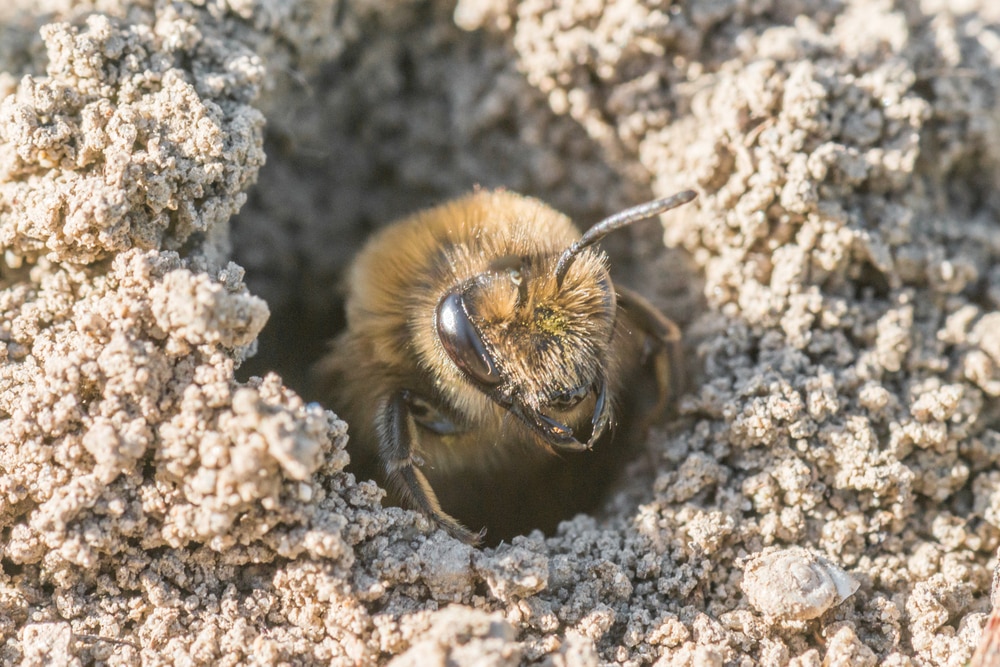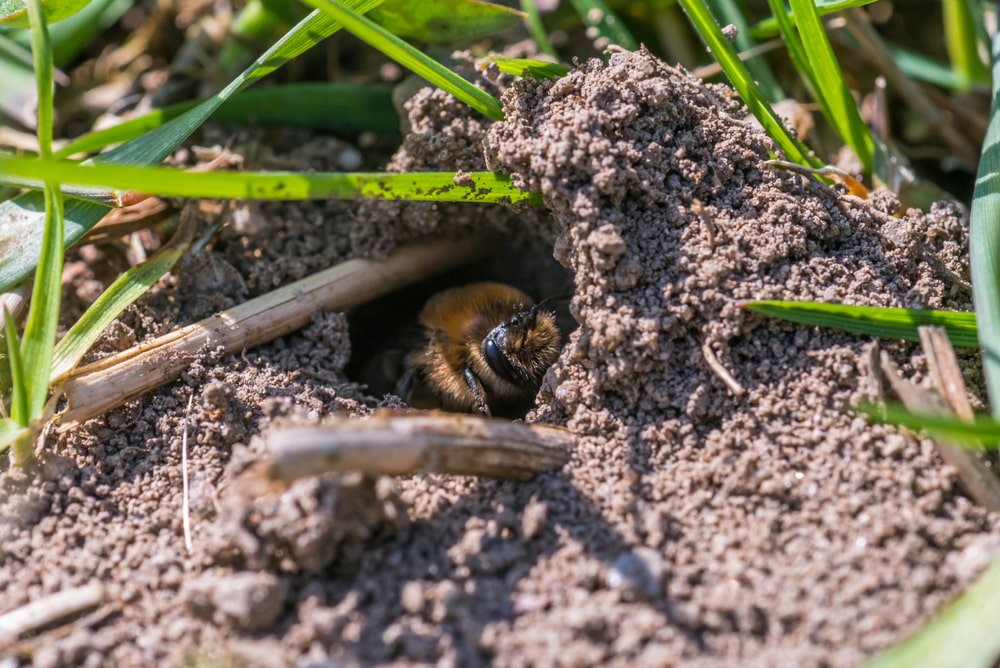Ground bees can wreak havoc on human feet and your yard’s appearance. Dozens of ground bees exist, with species like sweat bees, cellophane bees, and digger bees being some of the most common in North America.
Unlike traditional honey bees, ground bees primarily use soil to build their nest. The females are usually in charge of digging, often creating ¼ to ½-inch holes in the ground.
We’ll teach you how to get rid of ground bees and keep them away for good.
How Long Ground Bees Live in the Ground
Despite their name, ground bees don’t live in the ground for very long—usually two to four weeks at most.
Since bees are essential to our ecosystem and are at risk of extinction, the best way to control them once they’ve already called your yard home is to set up best practices to prevent them from returning after they leave their nest.
4 Strategies for Getting Rid of Ground Bees
It’s easy to spray some insecticide in a ground bee hole and feel that you got the job done. But the reality is that this is putting a bandaid on the problem and has environmental consequences.
So, we recommend implementing several of the following strategies to get rid of your ground bees and, most importantly, prevent them from returning.
1. Plant Denser Grass
Ground bees look for areas where they’ll expend the least energy possible when building their nests, which equates to areas with sparse grass. So, if your yard has a lot of bald spots, or if your ground bees are burrowing in places you had intended to keep grass-free, it’s time to rethink your landscape plan.
The good news is that encouraging a dense layer of grass to grow in your yard isn’t the only thing that will get rid of ground bees. You can also plant any dense ground cover vegetation.
2. Keep Your Lawn Wet
Ground bees are strong for their size, but they have limits. These bees seek dry dirt, preferably with a lot of sand, since it makes it easier for them to dig their tunnels.
For this reason, a hose is one of the best weapons for managing ground bees. Watering your yard with at least one inch of water per week will deter the current bees in your yard and prevent new ones from making it their home. That said, keeping your lawn watered tends to be more effective as a prevention tool than for eliminating the current bees.
3. Eliminate Attractive Nesting Ground
Although ground bees gravitate to the dirt to build their nests, they’ll happily make above-ground structures their home. In fact, they often prefer this method, given that it doesn’t require as much energy from them.
Rock and brick piles are some favorite structures of ground bees. Therefore, if you’re wondering how to get rid of ground bees that aren’t living in the ground, take away or patch the holes of the structure they’re living in. Just be sure to do so after the bees have left the nest.
4. Use Mulch
Although dense vegetation is ideal for getting rid of ground bees, mulch is the second best option. Mulch serves as a double protector for ground bees, given that it makes it more challenging for them to dig while also help retaining soil moisture.
So, if you choose to mulch to get rid of your ground bees, it’s best to use a generous layer. Just be sure not to place it too close to the base of your plants, as it can cause bacterial and fungal diseases.
Are You Ready To Get Rid of Your Ground Bees?
Although ground bees can be frustrating to have in your yard, they’re almost always harmless, provided you don’t “bug” them. Nevertheless, we understand that you don’t want them around your home, especially if you have pets or young children.
Luckily, learning how to get rid of ground bees is easy, and you don’t have to pour hundreds of dollars into taking care of the problem. Once you grasp the environment that ground bees thrive in, it’s easy to touch up your lawn to prevent them from returning.
So, we’ll let you work on getting rid of your ground bees so that you can go back to enjoying your yard.

